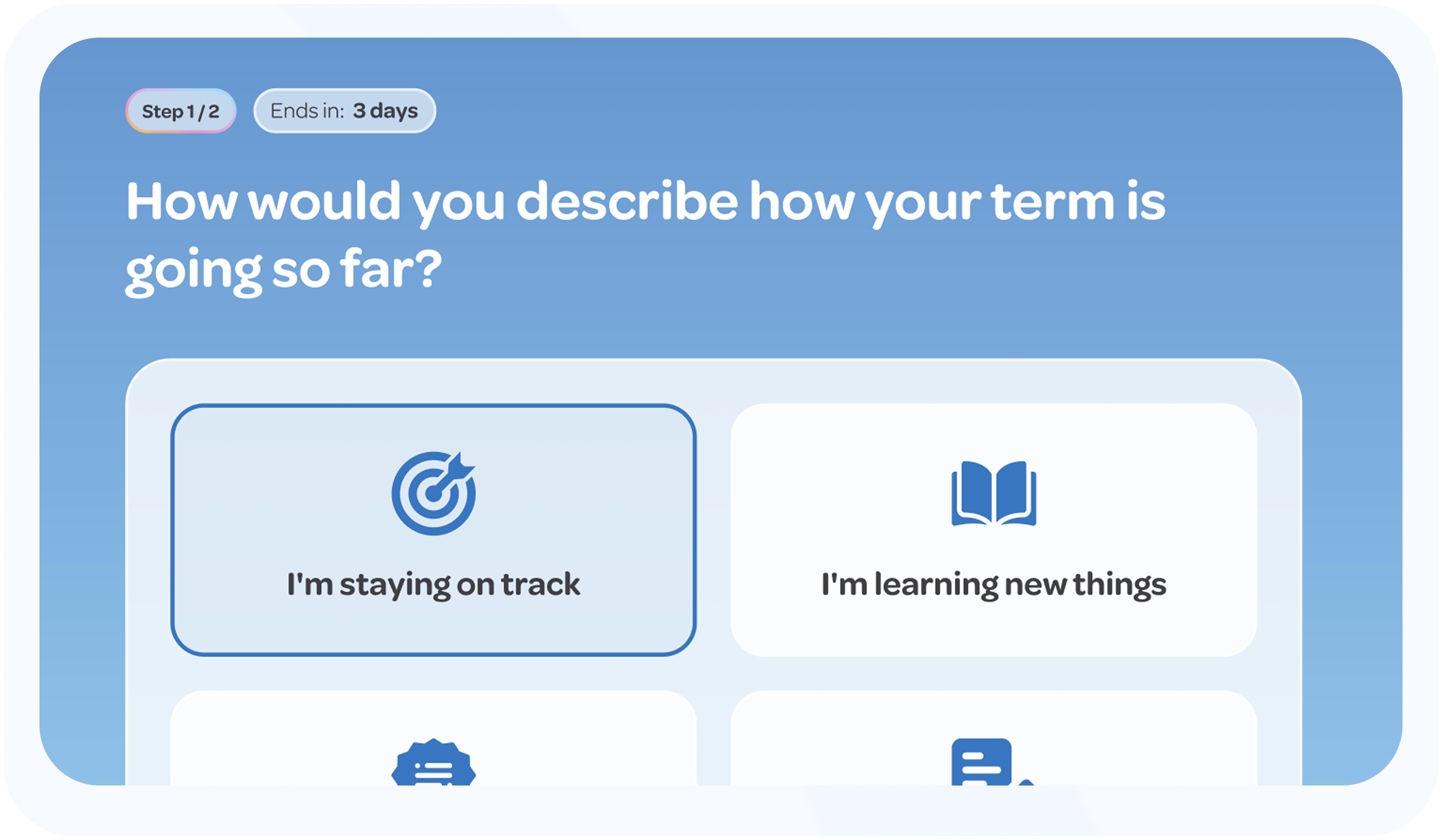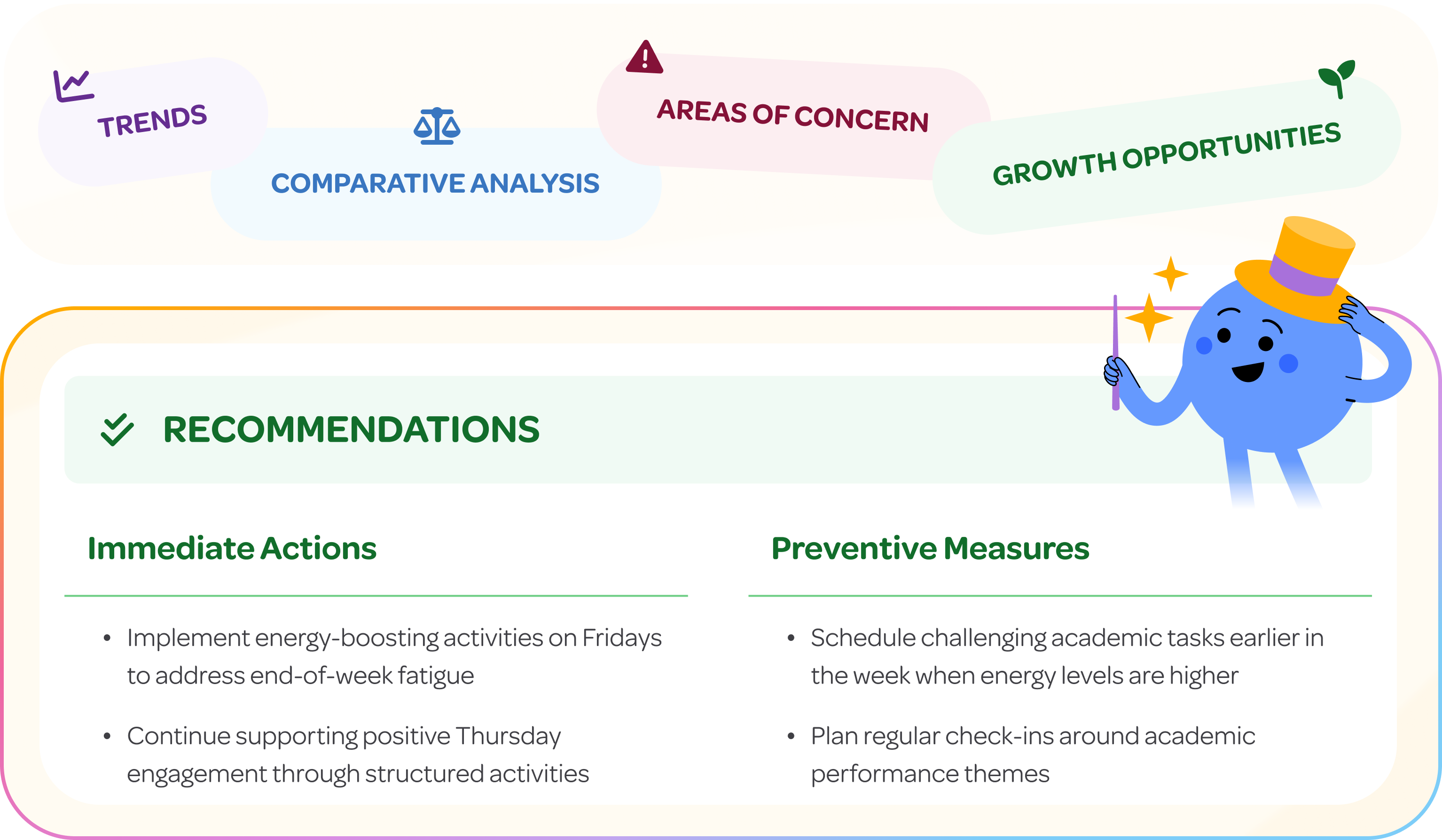Log in

I am a student

New to YouHue? Ask your teacher for help

I am an educator

Don’t have an account? Sign up
Daily check-ins build emotional awareness and give teachers real-time visibility. Evidence-based activities provide the skill-building instruction students need.
talk to our team

Make It Routine
Emotional expression becomes as natural as taking attendance when it happens for every student, every day


Every Child Known
Teachers gain deep understanding of each student with clear guidance on exactly what to do next


Skills That Stick
Students develop self-awareness and emotional regulation through practice that lasts a lifetime
Trusted by 100+ schools globally
Using YouHue
for students
Daily mood check‑ins plus monthly, and custom reflections capture every stage of learning
Students respond with quick moods or deeper two‑step reflections tailored to each context
Prompts adapt to every age, keeping wording and choices developmentally right

Students get quick resets like box breathing, five-senses grounding, or a brain-break stretch
Activities on bullying, friendships, academic support, healthy habits, and family and life challenges
Psychology-backed practice builds lasting coping skills and confident problem solving

Help students show up ready to learn, succeed, and thrive with YouHue
Using YouHue
for educators

Track class climate, follow individual shifts, and create group views across classes or students
Filter by week, month, term, or key event dates and explore trends in interactive charts
Gain deeper context with themes like academics, friendships, and school environment

Instant alerts flag concerning trends and critical reflections so you know who needs help
Log actions, track progress, and collaborate with colleagues in one shared intervention view
Send guided responses with acknowledgment, actionable advice, and suggested resources
YouHue Toolkit
An integrated set of reflections, insights, and resources that empowers every learner and makes support effortless for educators.


Deep Reflections
Monthly, and custom prompts capture
experiences and build social-emotional skills.


Insight Reports
Concise summaries turn reflections into
progress trends and actionable support.


Resource Library
Educational, situation‑based activities to
run in class or assign to students.

And, deep breaths...
All set, now take sixty seconds to breathe, reset, and carry on.
At YouHue, we’re dedicated to maintaining the highest levels of data security and privacy
YouHue is built on a secure platform that complies with COPPA, FERPA, and GDPR, ensuring rigorous data handling standards.


Secure and Compliant
Take full control of your personal and sensitive data with YouHue. Manage who accesses your data and how it is shared.


Private and Controlled
Our platform, grounded in thorough research, creates a secure and supportive environment for students, educators, and families.


Research
Driven
Driven

Getting started is simple.
Try YouHue free.
1
Begin Free
Get your school up and running in minutes
2
Explore Premium
Experience all features with your school's 6-week free trial
3
Pick Your Path
Stay on Free or upgrade whenever your school is ready
Free
Daily check-ins and basic mood analytics for unlimited students and classes
Sign up as educatorForever free

When outcomes matter most, they’re powered by research.


Students Achieve More
Research analyzing 33,700 students across 12 countries found that universal social-emotional learning programs improve academic achievement, with gains in both test scores and grades. Programs lasting four months or longer show the strongest results.


Classrooms Thrive Together
A study of 575,000 students across 53 countries showed universal SEL programs significantly improved social and emotional skills, peer relationships, school climate and safety, and overall school functioning.


Students Know Themselves
Higher emotional awareness is associated with lower depression and anxiety in youth. When students can identify and name their emotions, they develop the foundation needed for emotional regulation and mental wellbeing.


Relationships Drive Success
Strong student-teacher relationships significantly improve educational achievement and engagement. When teachers understand their students' emotional needs, students show greater participation, effort, and positive feelings about school.
See why schools love using YouHue
Let’s build classrooms where every learner feels seen, understood, and empowered
































